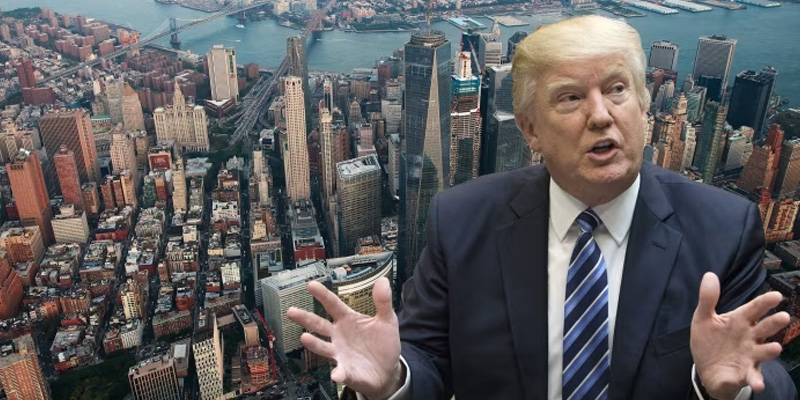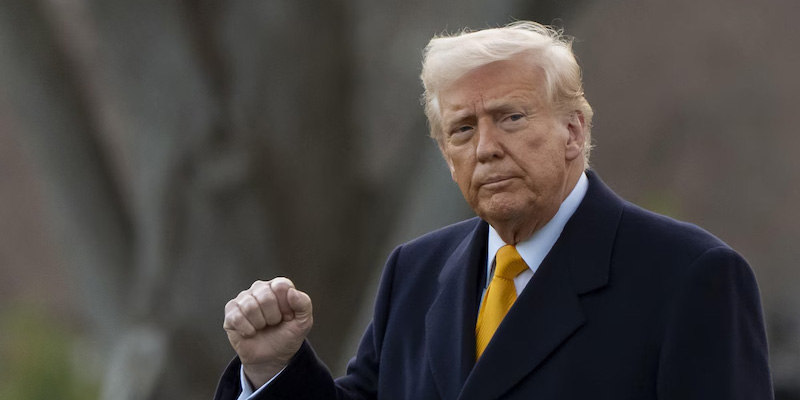In recent years, the topic of travel restrictions has sparked plenty of debate, especially with the potential return of travel ban policies by Donald Trump. As we look at 2025, the conversation around Trump’s proposed travel ban is once again heating up, sparking conversations about its potential effects on U.S. tourism. But what is this new travel ban exactly, and what could it mean for the tourism industry in the U.S.?
The Background of Trump’s Travel Ban
Trump’s first travel ban emerged in 2017 when he signed an executive order to limit the entry of individuals from certain countries from entering the U.S. The move was framed as a security measure to protect national security, mainly to reduce the risk of terrorism. At the time, the ban initially affected seven predominantly Muslim-majority countries in the Middle East and Africa, including Iran, Iraq, and Syria. Over time, the list was revised, with countries like North Korea and Venezuela added and others removed.
Fast forward to 2025; as Trump continues to shape his political platform, he has proposed a new set of travel restrictions, not just revisiting the original list of countries but also expanding it to include up to forty-three countries. This would mean stricter travel rules for travelers worldwide, including Africa, the Middle East, and Asia.
The Reason Behind the Ban
As with previous versions, the primary justification behind Trump’s proposed travel ban is national security. According to Trump and his supporters, these measures are necessary to prevent individuals from high-risk countries from entering the U.S. These security measures are intended to protect American citizens from potential acts of terrorism and other security concerns.
However, critics of the ban argue that these policies often unfairly target certain countries and communities, leading to discrimination and stigmatization. They point out that the measures can cause more harm than good by stigmatizing whole groups of people and undermining the values of fairness and inclusion.
Potential Impact on U.S. Tourism

Fewer International Visits
The most immediate impact of the travel ban would likely be a sharp decline in the number of international tourists coming to visit the U.S. With stricter entry requirements in place, many potential visitors might decide to avoid the U.S. altogether, either because of the fear of being denied entry or because the visa process becomes more complicated. Countries affected by the ban could see a noticeable decline in tourism for leisure and business. This could affect those looking for India flight deals or a Cheap flight to India from the USA, as many might opt for alternative destinations instead of navigating stricter U.S. entry requirements.
Economic Losses
Tourism is a major part of the U.S. economy, contributing billions of dollars every year. According to the U.S. Travel Association, tourism faces significant losses whenever travel restrictions occur. If international tourists decide to visit other countries instead of the USA, industries like hospitality, airlines, and retail could take a significant hit. A drop in tourism from key regions could mean fewer visitors spending money in U.S. cities, which in turn affects jobs and local economies that depend on tourism.
Impact on Business Travel

Aside from leisure tourists, business travelers are also likely to be affected by the proposed ban. Many international companies and professionals depend on traveling to the U.S. for conferences, meetings, and collaborations. Restrictions on travelers from certain countries would slow the international business exchange and potentially limit opportunities for U.S. companies to collaborate with international partners.
Loss of Cultural Exchange and Global Relationships
Aside from the financial implications, there is also a risk of the U.S. damaging its global reputation. The travel ban sends a message that people from certain countries and groups are unwelcome, which could affect long-term diplomatic relationships. The tourism industry is about more than just money; it’s also about cultural exchange and fostering goodwill between nations. By restricting travel, the U.S. may lose out on the benefits of these connections, making it harder to maintain strong international relationships.
Long-Term Effects on U.S. Tourism and Its Global Image

The effects of Trump’s proposed travel ban may extend beyond the immediate future. A long-term decline in tourism could have a lasting impact on the perception of the U.S. as a welcoming and open country. For many travelers, a country’s tourism policies reflect its values, and the travel ban may signal to the world that the U.S. is not as welcoming to international visitors as it once was.
Moreover, if tourism continues declining, the U.S.’s competitive edge as a global destination could be harmed. Other countries, like Canada and those in Europe, may become more attractive to international travelers looking for alternative destinations, further shifting international tourism away from the UU.S Those seeking cheap flight to India from USA or India flight deals might consider other destinations instead, as restrictions discourage travelers from visiting the U.S.
Will the Ban Be Implemented?
While the proposed travel ban is still early, it will likely face several legal challenges. Advocacy groups and legal experts have already raised concerns about its fairness. If the ban moves forward, its effects could be felt across the tourism industry and beyond. However, given the history of legal battles over similar policies, there’s always the chance that the ban could be modified or overturned in court, as with previous versions of the policy.
Conclusion
Trump’s proposed travel ban represents a continuation of his administration’s efforts to tighten U.S. borders under the guise of national security. However, its potential impact on the tourism industry cannot be ignored. With decreased international visitors, economic consequences, and damage to the U.S.’s global image, the effects on tourism could be long-lasting. As discussions continue, it remains to be seen whether these measures will be fully implemented, but what is clear is that the consequences could be significant for both the tourism sector and the U.S. place in the global community.
The future of U.S. tourism will depend on finding a balance between security concerns and the country’s traditional role as a welcoming destination. Whether the ban goes forward or not, it serves as a reminder of how interconnected global travel is and the importance of maintaining an open and inclusive approach to international visitors. If you’re looking for USA to India flight deals or want to learn more about international travel options, contact us for the latest updates on the best travel opportunities.
















